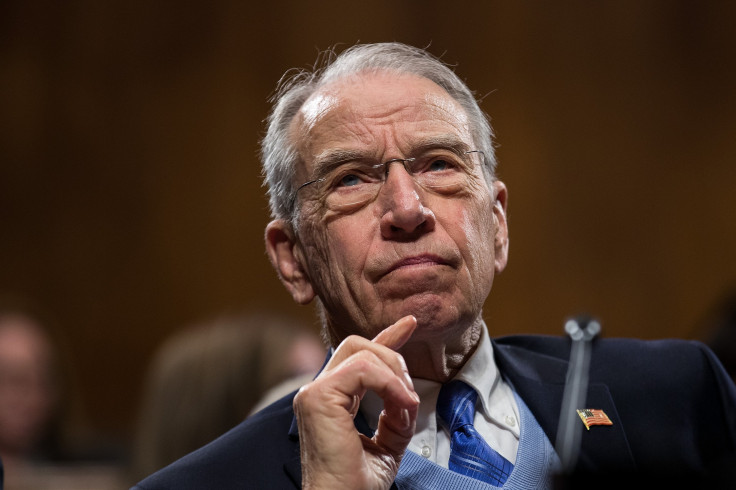Refugee Deal Update: Sen. Chuck Grassley Demands Australia Agreement Be Declassified

Sen. Chuck Grassley, R-Iowa, demanded to know Sunday why the administration has refused to declassify the Australian refugee deal, tweeting the White House should answer the letter he sent nearly two weeks ago.
Grassley said the deal should be declassified and if it can’t be, then the White House owes him an explanation.
Secret agreement between Obama&Australia 4US to take Aussie refugees shld b declassified/If can't be tell me why/WH:ANSWER MY LETTER
— ChuckGrassley (@ChuckGrassley) February 12, 2017
Trump reportedly hung up on Australian Prime Minister Malcolm Turnbull when the latter brought up the deal made with the Obama administration and said he expected Trump to honor it. Trump called the agreement “the worst deal ever.”
“It’s a deal obviously that President Trump has said he wouldn’t have entered into — but he has committed to honor it,” Turnbull told Nine News.
The deal involves roughly 1,250 refugees from Iran, Pakistan, Afghanistan, Somalia, Sri Lanka and Sudan, who are being held in detention facilities on Papua New Guinea’s Manus Island and Nauru. Iran, Somalia and Sudan are among the seven Muslim-majority countries from which a Trump is trying to block travelers.
In a letter to Secretary of State Rex Tillerson dated Feb. 2, Grassley says he has been trying to get the deal, reached without consulting Congress, declassified since November.
“The American people have a right to be fully aware of the actions of their government regarding foreign nationals who may be admitted to the United States. American taxpayers not only foot the bill for the majority of the refugee resettlement in the United States, but they bear any consequences regarding the security implications of those admitted to our country,” Grassley said in the letter.
Australia has taken flak for its handling of asylum-seekers who try to get to Australia by boat to deter people smugglers. Most of the refugees come from Iran, Iraq, Afghanistan, Malaysia, Myanmar (Burma), Sri Lanka and Vietnam by way of Indonesia. Once their boats are intercepted, they are banished to island detention facilities until other countries can be found to take them. Rights groups have labeled the conditions at those facilities deplorable.
Australia pays Papua New Guinea and Nauru to house the refugees, but Papua New Guinea’s highest court has ordered the detention facility on Manus Island closed, ruling the refugees have been detained illegally.
Volker Turk, an assistant high commissioner with the United Nations’ refugee agency, told the New York Times in November the deal was a one-time thing and the U.N. would help screen and resettle the refugees. In exchange, Australia agreed to take an unspecified number of Central American refugees from a processing center in Costa Rica, the Times said.
The Obama administration had planned to admit 110,000 refugees into the United States in 2017 but the Trump administration already has halved that number.
© Copyright IBTimes 2025. All rights reserved.






















